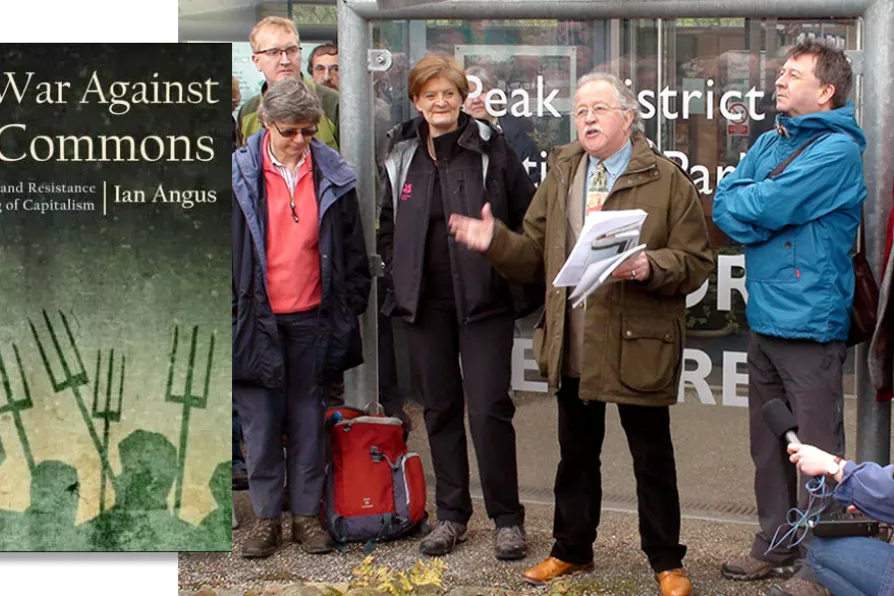SIMON PARSONS applauds an artist who rescues and rehumanises stories of women, the victims of violence, from a feminist perspective

 LANDMARK PROTEST: 80th anniversary of of the 1932 Mass Trespass in the Peak District: Singer and broadcaster Mike Harding (centre), flanked by (from left to right) Kate Ashbrook, President of the Ramblers; Dame Fiona Reynolds Director General of the National Trust; Broadcaster Stuart Maconie and Harry Rothman, son of trespass leader Benny Rothman
LANDMARK PROTEST: 80th anniversary of of the 1932 Mass Trespass in the Peak District: Singer and broadcaster Mike Harding (centre), flanked by (from left to right) Kate Ashbrook, President of the Ramblers; Dame Fiona Reynolds Director General of the National Trust; Broadcaster Stuart Maconie and Harry Rothman, son of trespass leader Benny Rothman
The War Against the Commons: Dispossession and Resistance in the Making of Capitalism
By Ian Angus
Monthly Review Press, New York, £18.99
A GOOD history book makes you think about the present.
On the day I finished Ian Angus’s The War Against the Commons I visited my local station ticket office. The queue was long and I had time to look around and reflect. Once all this great building, this marvel of engineering, this vital service, had been publicly owned, part of the modern “commons.” Even now in its privatised state there remained some good elements – like the expert and helpful staff in the ticket office which the train-lords and rentier bankers were planning to evict!
So, Angus’s book is timely indeed.

GUILLERMO THOMAS recommends a useful book aimed at informing activists with local examples of solidarity in action around the world

This year’s march and swim in a reservoir in the Peak District will continue the fight for 'access for all' in a nation where 92 per cent of land remains inaccessible to the public, writes SHAILA SHOBNAM












